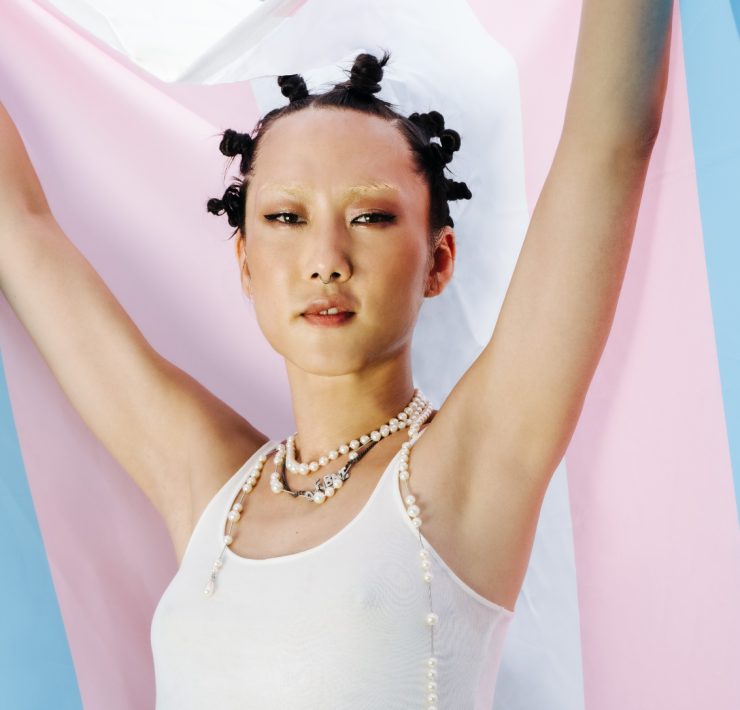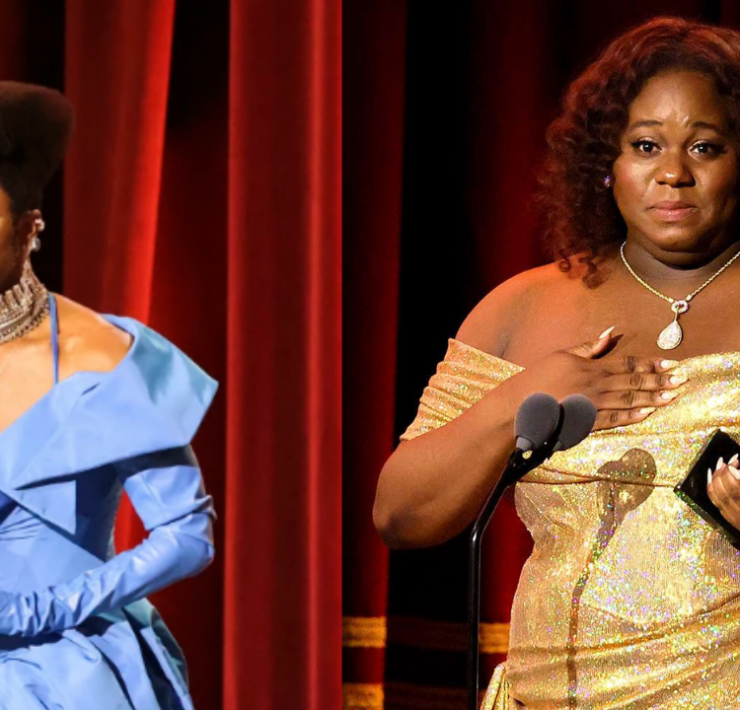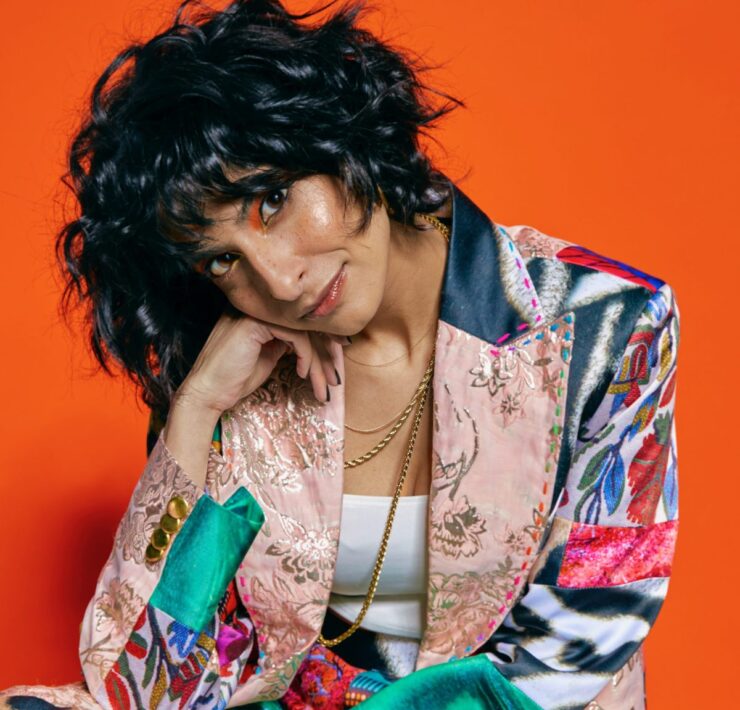Dr. Michelle Martin-Baron: Keeping Queer Art Queer

Television and film are having a queer year. Queer Eye, Killing Eve, Ru Paul’s Drag Race, Pose, and Special all made statements when Emmy nominations were announced last month, and Bohemian Rhapsody dominated the Oscars back in February.
But, even as more queer stories and characters make it on-screen, queer audiences watch straight people applauded for their portrayal—like Rami Malek winning best actor for playing Freddy Mercury, one of the most revered queer men of all time.
The queer community wants increased visibility, but don’t we deserve to be part of creating the art?
It can be difficult determining how to enjoy art that feels co-opted by people outside our community, so I went to Dr. Michelle Martin-Baron, an expert on performance and queer studies.
Why is it that only white, straight people are allowed to have complex personhood on TV?
Martin-Baron holds a Ph.D. in Performance Studies and examines the sense of national belonging created—or not created—through visual performances arts. In particular, her research focuses on marginalized groups.
What are your thoughts on non-queer actors portraying queer characters?
I think it’s time to really insist that queer folks can play queer folks. We have this trend of having straight actors play queer characters for a lot of reasons, partly the fear of coming out as an actor and still getting romantic, heterosexual lead roles. And that’s the vast majority of parts out there: straight characters. GLAAD reports only 8.8 percent of all characters on TV are queer, so if you’re trying to work in Hollywood or on television, you’re definitely going to play straight people. I think that as we continue to see more and more people coming out and being visible, people won’t be able to say, ‘I didn’t know any queer actors.’ This is also the case for people playing trans characters. Activists are pushing to say it’s no longer cool to have straight, cis-gender folk playing trans characters.
There’s been a big story about that recently with Scarlett Johansson. [Johansson, set to play a trans character, stepped away from a project helmed by Ghost in the Shell director Rupert Sanders.]
She was right to step away, and I think the more big names you have in Hollywood who are willing to say, ‘This is not a part that I should play, because, ethically, that’s the right thing to do,’ that’s a good thing to happen. I don’t know that everyone’s willing to do that. And actors get the flack, but who are the people in casting making these decisions?
What about entirely non-queer writers, directors, designers, producers, telling queer stories? If queer individuals aren’t included across the board in the creation of the art, is it fair to use their stories and experiences?
If you have a room writing stories about marginalized populations that they are not a part of, that’s definitely problematic. The more diverse of a writers’ room that you have, the better stories you’re going to create, hands down. Shows like Pose, among others, are doing a better job at that. But it absolutely becomes exploitative if you’re not having queer folks in the room who are in charge. Because the world literally looks different depending on where you’re standing in it.
Do you think there’s a difference between representation and inclusion? How would you define each of those?
Inclusion is about making sure everyone is seen, everyone has a piece of the pie. Representation is trickier, because it’s so much about power. If we look on television and see who is represented the most, we see who holds the power. Like, why are there so many stories about white, hetero-normative families?
Representation, then, becomes a question of how we tell multiple stories and recognize the complex personhood of all people. Why is it that only white, straight people are allowed to have complex personhood on TV? And once you give complex personhood to other characters, because they’re not represented often, they become stereotypes that are seen as speaking for the entire community. In earlier days of queer representation, the roles were terrible, most portrayed as sociopaths or incredibly depressed or villains, and they mostly ended up dead. The debate was, some representation is better than no representation. Those being the only tropes played over and over and over again, what does that tell society about who queer people are? It makes it very hard for queer viewers to imagine a life of anything different.
Representation starts to tell those stories about whose lives count and who’s allowed to be complex.
There’s this common practice of using at least one straight actor in portraying queer couples. Do you think it’s easier for non-queer audiences to watch queer relationships with that distancing element?
All these arguments about ‘Is America ready for X, Y, or Z? or ‘Is it more palatable for straight people?’ are always centering this conservative, cisgender, usually male audience member. But audiences are much more diverse, and even folks who identify as conservative, cisgender men don’t have one certain point of view. People from all walks of life watch TV and are hungry for representations of themselves.
The exploitation comes from folks being seen as a market. Going back to the idea of straight people playing queer folks, those kinds of roles tend to be awarded, because it’s seen as unbelievable that they can transgress these boundaries. That is insulting. Not only because it’s straight folks getting accolades for roles that queer folks should be able to play, but also this idea that being LGBT is so unacceptable or outlandish. It perpetuates homophobia, honestly; even as it’s making queer characters and queer stories more accessible, it’s perpetuating this idea of the strangeness of queer people.
Do you find queer men are portrayed more often than queer women?
Absolutely. We see more queer men, because we see more men, period. [Film scholar] Ruby Rich said, “Where the boys are archaeologists, the girls have to be alchemists.” There’s all this history that men can dig into, and women have to create from scratch; that history doesn’t exist in the same way. Looking at what’s happening today, I certainly see echoes and reflections of that.
What's Your Reaction?
Justus Flair's parents got her name from the obituary page of their local newspaper. Maybe it was fate, since she's spent much of her life trying to keep the name in print. Find Justus on Twitter @justusflair and Instagram @justusflair.










